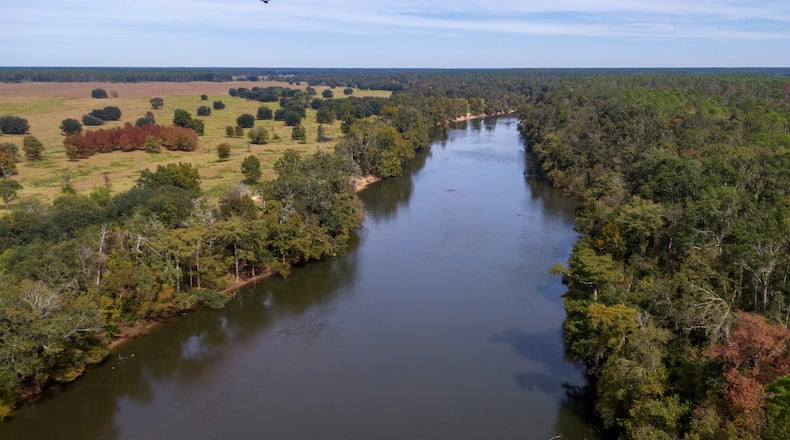Justices appeared Monday to lay the groundwork for what would be a second round of oral arguments before the Supreme Court in Florida’s long-running water rights case against Georgia.
The court issued a notice granting both states 45 days to respond to a recommendation recently issued by the case’s expert adjudicator, New Mexico-based federal Judge Paul Kelly, as well as time to counter one another’s arguments in subsequent legal briefs.
That sets up the possibility that justices could hear the case later this spring or — more likely, observers said — in their next term that begins in October. The court could also rule on the 7-year-old case, Florida v. Georgia, without another round of oral arguments.
UPDATE: US Supreme Court holds hearing in Georgia-Florida water war dispute focusing on Apalachicola Bay
Monday's notice came less than two months after Kelly called for justices to reject Florida's request to limit Georgia's water usage in the Apalachicola-Chattahoochee-Flint river basin, which originates northeast of metro Atlanta and flows into the Gulf of Mexico. The basin serves as the main source of drinking water for roughly 70% of metro Atlanta and irrigates farms in southwest Georgia, a cornerstone of the state's $13.8 billion agriculture industry.
Read more: Your cheat sheet to the Georgia-Florida water wars
Florida alleges that Georgia’s unrestrained water use during a recent drought helped lead to the collapse of its prized oyster industry downstream in the Apalachicola Bay in 2012. Georgia said it’s been a responsible water steward and that Florida’s proposed remedy would kneecap the state’s economy and lead to little additional water flowing downstream because of the complicated way the U.S. Army Corps of Engineers manages the region’s locks and dams.
Kelly’s recommendation in December was a major victory for Georgia, which has spent nearly $50 million in taxpayer money defending itself. But the state was in a similar position two years ago, when it went before Supreme Court justices for the first time.
Despite a Georgia-friendly recommendation from the case's first expert adjudicator, Ralph Lancaster, justices indicated in January 2018 that they wanted to try and find some form of relief for Florida.
Kelly told the justices last month that “the evidence has shown that Georgia’s water use is reasonable” and that there wasn’t enough evidence that the benefits of capping the state’s water usage as Florida has requested would outweigh the economic harms.
About the Author
Keep Reading
The Latest
Featured


